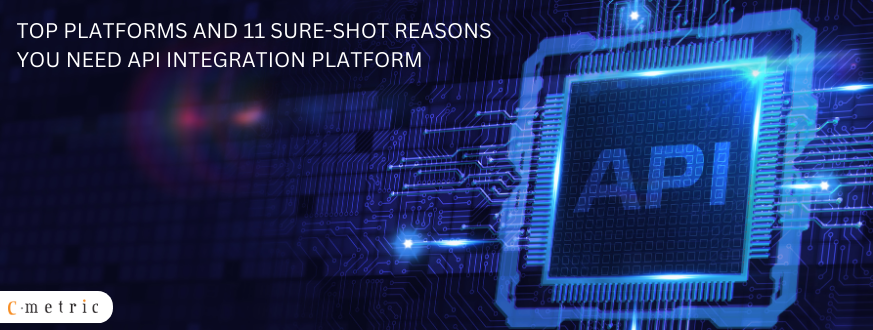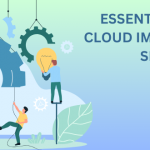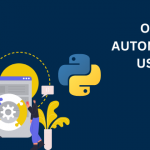API integration is actively scaling, offering next-level connectivity that enables organizations to automate business processes. With the changing business dogmas, it is not about whether one should leverage API integration within their system but how many of them are needed and how they will be developed and published.
Companies are open to integrating APIs within their system, however, just the integration is not a sure-shot solution to achieve scalability and speed. Therefore, in this blog post, we are going to look at the Top API Integration Platforms and 10 Reasons Why Businesses Need API Integration Platforms to realize the true potential of their APIs and achieve scalability and performance.
What is an API Integration Platform?
An API Integration Platform acts as a medium that enables the APIs to communicate exceptionally by sharing information through that platform. It provides the APIs with the ability to execute multiple tasks more quickly and effectively. The API management platforms offer governance, monitoring, security, and support for the APIs. The Integration platform is a solution capable of integrating the applications to expose reference data and services.
Reasons Why Businesses Need API Integration Platforms
API integration platforms benefit business owners in various ways. APIs enable businesses to harness existing apps, data, and services and transform them into a foundation for new capabilities. Below are a few reasons API Integration Platforms can benefit your business.
Create New APIs Effectively and Efficiently
When integrating APIs into your systems, whether by developing them from scratch or using
Third-party APIs from vendors. Both are equally effective and efficient however, developing one from scratch is a tedious job as it requires you to focus on several areas from the business logic of the APIs, setting up API gateways, and ensuring high availability, scalability, and security.
Using an API Integration platform is highly effective in this scenario as it allows for creating API with a few clicks saving all time, effort, and money, while fully leveraging existing tech investments.
Creating Custom Solutions By Integrating Multiple Apps
API Integration revamps the entire functioning of your app development process. For handling multiple tasks simultaneously API Integration offers the ideal solution. Though there are a few tools within the market that claim to perform multiple tasks simultaneously all these are expensive and sometimes complex to manage.
Also, there is a risk of security, therefore it is better to develop most of these features collectively in-house and assemble them to allow for multiple such features to perform accordingly. To achieve these collectively an API Integration platform comes to your disposal by easily connecting multiple departments allowing you to replace all with better and highly effective options.
Easily Connect To Cloud Apps
Cloud apps are the future of tech, and the growing inclination towards cloud infrastructure within the market is leading to the uncontrollable use of SaaS-based apps making it a grave issue for global enterprises. Based on a study an avg. company uses around 315 SaaS applications which is increasing further. API Integrations here are the generic methods to connect these apps. The legacy integration techs such as ESBs are not effective in supporting modern API
Connectivity beyond the firewall. With applications moving to the cloud, the cloud-born API Integration platforms such as Jitter bit API Manager for connecting modern cloud APIs are getting significant.
Creating New Apps by Integrating Different APIs
Popular applications within the market are built upon the existing tech stacks, by combining them uniquely using APIs. The best example is Instagram which uses the photo filters and social media technologies that already exist within the market but introduced the same with a completely new approach and they collectively packaged it differently using the API integration.
You can leverage the same approach to create new apps using an API Integration platform and your development team can efficiently connect various technologies or even connect the existing integrations as APIs or micro services, thereby, boosting the introduction of new apps within the market.
Unlocking the Value from Legacy Data Sources
Many companies especially the ones that have been within the market for a very long time have a huge lot of data that is stored for several months and even a year or more in their database but is unused. The complexity arises when the need to access this data arises in the current system.
The API Integration platforms turn out to be of great importance under these scenarios. Businesses can create their APIs for internal use, simplifying the extraction of data from older servers, and databases, and promoting its reuse in modern business operations.
Explore Numerous APIs in One Place
For developing new features it is common to use functionalities from the existing APIs. To streamline this process all the APIs must be accessible in one central location. The API marketplace becomes important in these scenarios. The user-friendly portals enable your development team to browse and connect to numerous APIs effectively.
Modern API integration platforms often include built-in marketplaces with advanced search features, facilitating quick discovery of the needed APIs. An API integration platform also helps in comparing different APIs with similar functions, helping you choose the most suitable ones for your products.
Combine Modern & Legacy Systems with Hybrid Integrations
Many enterprises face challenges with accessing and integrating old data from on-site legacy systems. An API Integration platform presents a solution by enabling companies to create hybrid integrations, involving connecting legacy on-site systems with modern cloud-based systems, allowing businesses to reuse established business logic and workflows while incorporating new technologies.
Boosts Growth and Innovation
The API Integration platforms are not just beneficial in a modern transformation strategy but they also play an essential role by speeding up and securing the entire API lifecycle. The API Integration platforms become a crucial asset for organizations to expand their business, and outperform their competitors. This factor applies to various areas, including new mobile applications, omnichannel initiatives, enhanced eCommerce, and improved business processes.
Streamlining API Management
Handling numerous APIs can get tricky, especially those developed manually or integrated from third parties. Therefore, the responsibility of your development team increases for the oversight and maintenance of the said numerous APIs. The task becomes even more complex and time-consuming when the API usage increases.
The API Integration platforms offer a one-stop solution to maintain them all centrally on a hub for all deployed and created APIs. This simplifies the management and increases security, further offering a comprehensive overview, and significantly reducing the administrative burden.
Easily Connect Diverse Data Sources Simply
Business processes often involve data from various sources, such as HR responsibilities drawing from different data points. Also, dealing with separate tools for each task can be challenging and costly. The API integration platforms offer an easy connection of multiple data sources and the exposure of these integrations as the APIs or the microservices.
Improved Support
Getting real-time assistance, whether using an API made by an in-house team or a third-party API, is a challenging task. While third-party vendors offer detailed documentation, it might not be enough to tackle every situation.
An API Integration platform typically has in-house experts who are ready to help you based on your needs. Having reliable support ensures your business maximizes the benefits of its APIs and other investments.
Top API Integration Platforms For Your Business
Several API integration Platforms can benefit your API Integration and offer significant benefits. Here are a few of them:
- Zapier: It connects more than 3,000 apps to make automation easier and lets users build automated workflows without knowing how to
- DreamFactory: An open-source platform for API automation that makes it simple to create APIs for file systems, databases, and external
- Boomi: A division of Dell Technologies, is an all-inclusive integration platform as a service (iPaaS) solution that makes it easier to connect devices, data, and
- Oracle API Platform: This platform helps businesses create safe, scalable API ecosystems by offering a comprehensive collection of tools for developing, securing, and monitoring
- IBM API Connect: It helps business owners design and implement APIs more effectively by streamlining the development, testing, and management of
- Cyclr: SaaS platforms may provide native integrations with Cyclr, an embedded integration toolkit that improves user experience by providing seamless
- io: As a platform that automates data operations and ensures effective data sharing across various apps and systems, Coefficient.io focuses on making API connections simpler.
Conclusion
Thus, we can conclude that API Integration Platforms offer numerous advantages for businesses. While some benefits are readily apparent, a comprehensive understanding of these platforms and their functionalities is essential to unlock their full potential. Therefore, adopting API integration platforms is not just a strategic choice but an increasingly vital necessity to keep pace with the rapidly evolving tech development landscape and achieve your company’s goal of agility and digital excellence.















Get in Touch